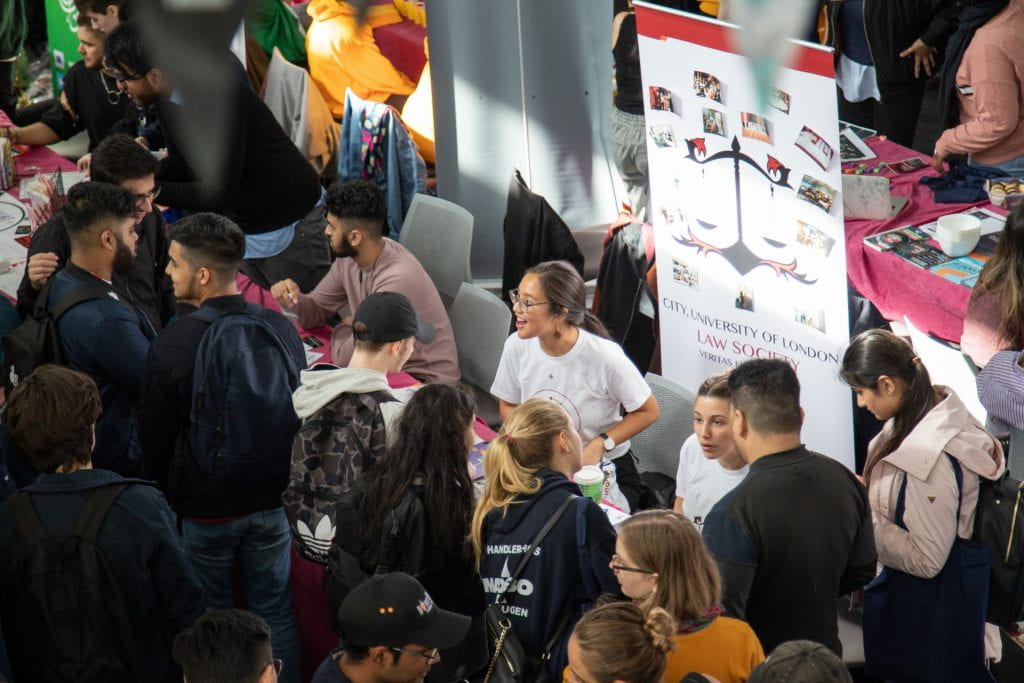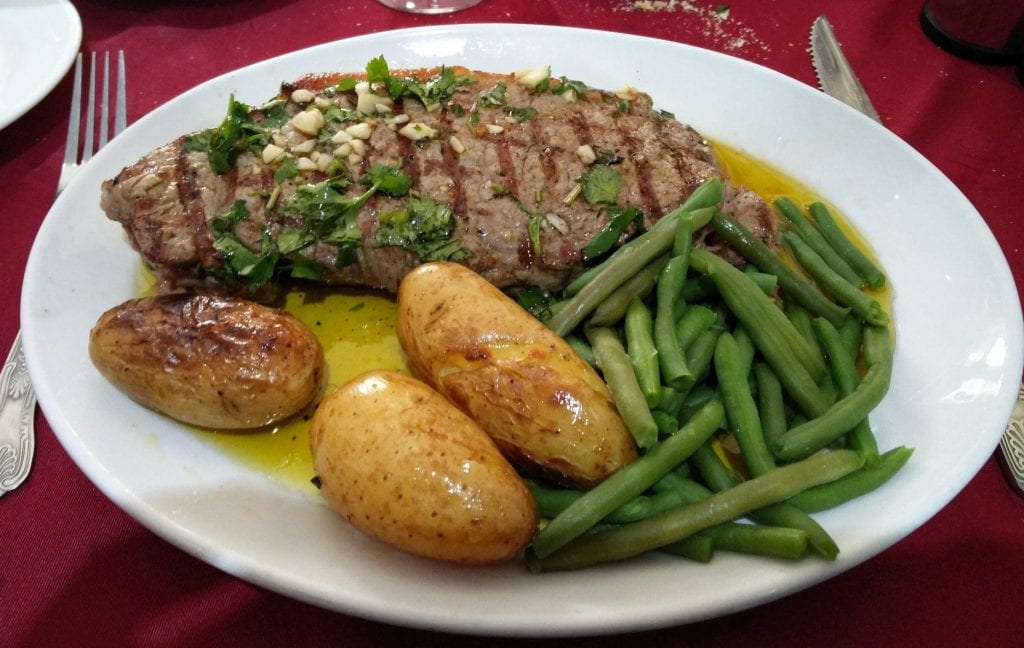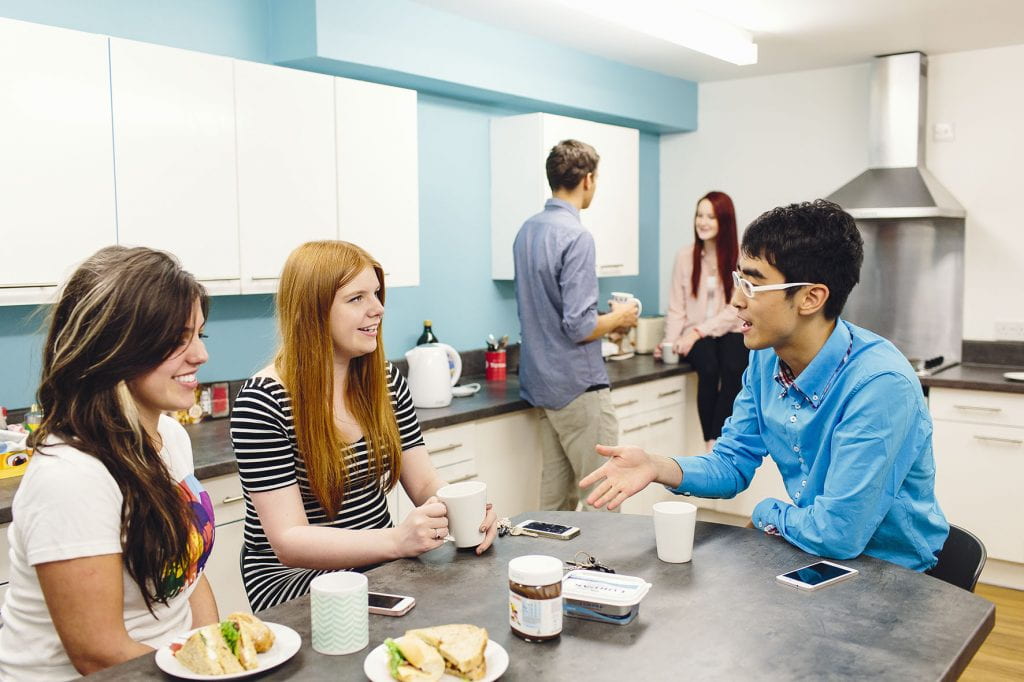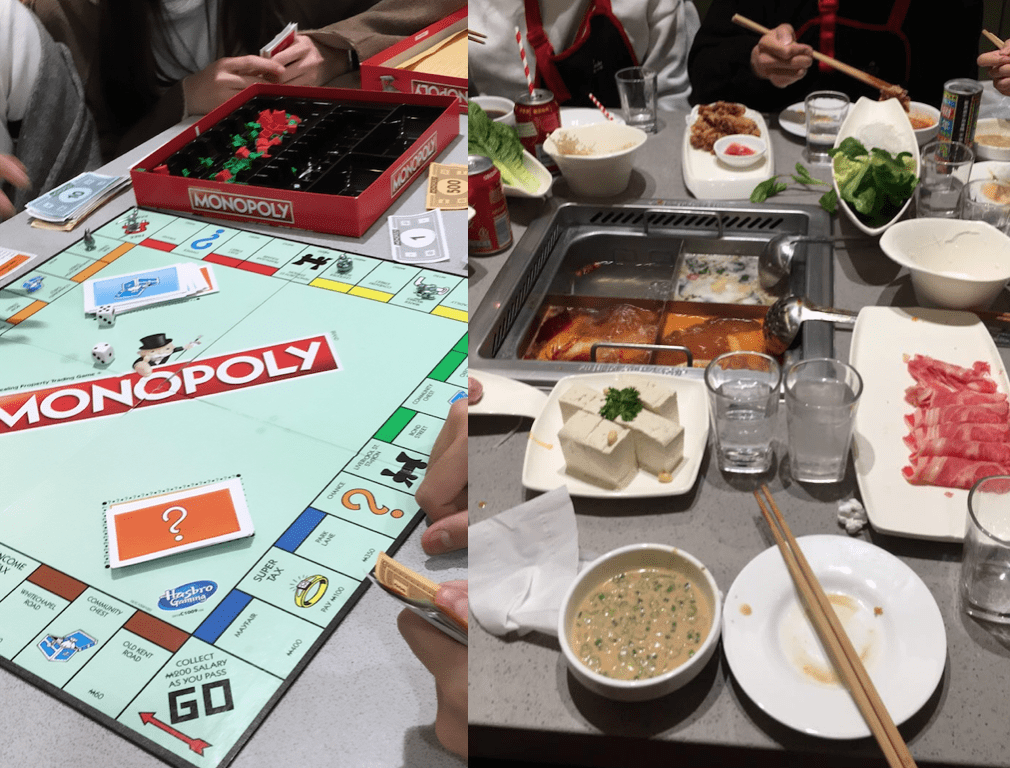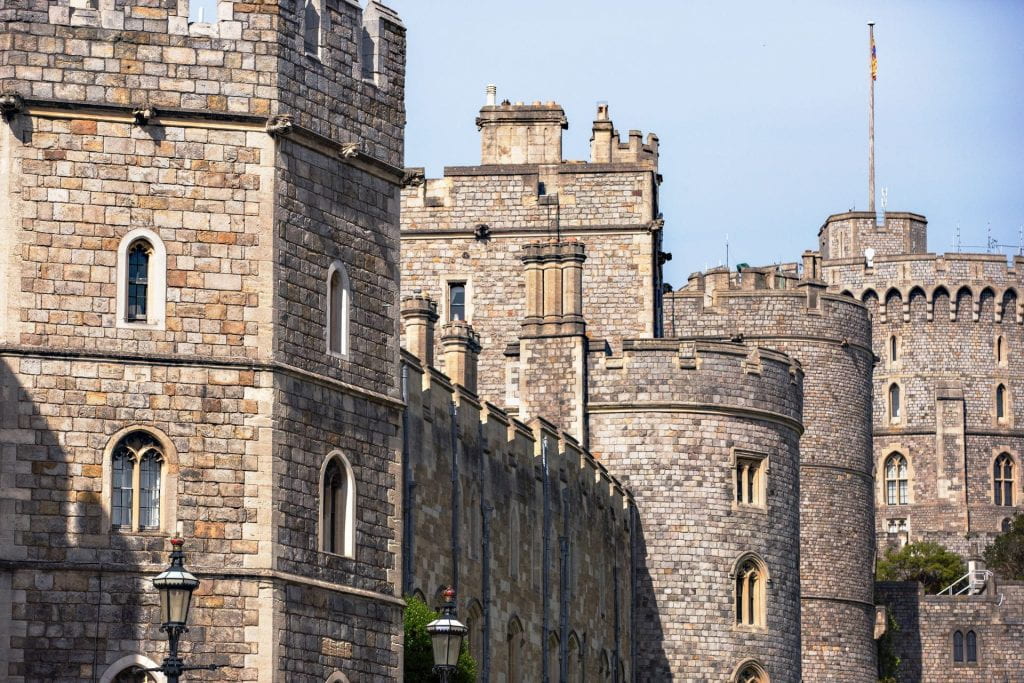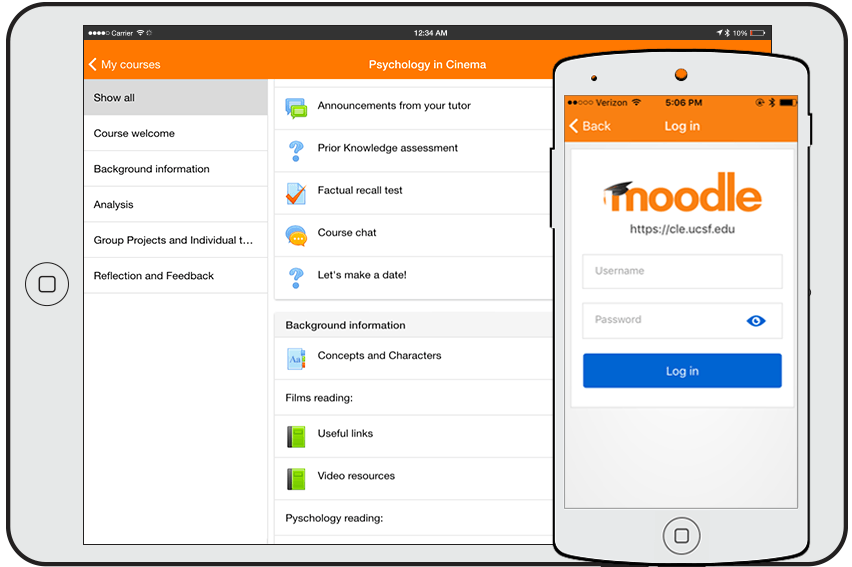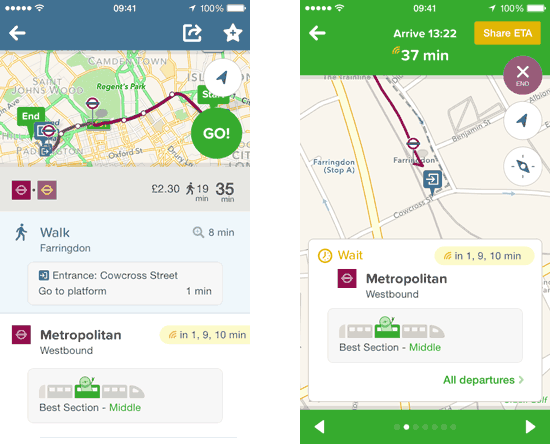How to find legal work experience and network while studying
Law graduates and undergraduates face intense competition when applying for pupillages, training contracts and the like, as the requirements for legal work experience have become a necessity as well as a spot-on addition to any résumé.
Without any further delays, let me share some useful advice regarding legal work and volunteering experiences. Some of these are based off my own experiences from studying my LLB (Hons) at City, University of London.
Apply for a Micro-placements programme
City’s micro-placements programme offers excellent opportunities for Law students to gain legal work experience. The programme has been designed for students who want to explore careers different from those traditionally associated with their degree. The initiative is an exciting way to gain professional experience via short summer placements with a wide-range of London-based employers.
Bare in mind, while there are legal internships and micro-placements available, these would not be undertaken within the actual legal sector, however there are many opportunities to gain invaluable experience from the in-house legal team within your selected company.
Attend job fairs
Job fairs are perfect for making connections and finding job opportunities. I highly recommend attending the following fairs:
- Law & Social Sciences Fair: Hosted in mid-October, Law students at any stage of their education are eligible to attend the fair and I would urge every Law student to attend. The weekly University e-newsletters sent to students often promote such fairs so look out for them.
- Graduate jobs fair: Held on campus in June, this event is an opportunity to meet recruiters from all types of industries and find out about, or even apply for, graduate schemes, immediate roles, internships, and volunteering opportunities. While the event is open to students studying all types of courses, there are a considerable number of law-firms’ recruiters in attendance. Don’t be thrown off by the name of the event, undergrads are welcomed too – I first attended the fair after completing my first year.
Join a law society
I cannot stress the importance of joining a law society at the University. While there are many great societies available for City students, I recommend the following:
- The Law Society is one of the greatest societies at City, at least with regards to the number of memberships. The society regularly organises workshops for students, career opportunities, seminars, shares the latest news and offers advice.
- Pro Bono Society host various types of social and professional events, they also provide members with multiple professional opportunities, including both internal Pro Bono work as well as external volunteering options.
Join an Inn of Court
I would highly recommend submitting an application and attaining a membership of one of the following Inns of court: Gray’s Inn, Lincoln’s Inn, Inner Temple and Middle Temple. Please be aware that once you become a member, it is not possible to alter your decision and transfer to one of the other Inns, so choose carefully to avoid any kind of disappointment in the future.
For those of you who are intending to qualify as a barrister, it is a mandatory requirement to be a member of an Inn prior to the commencement of your BPTC (Bar Professional Training Course). Having said that, I would advise each and every law student at any stage of their degree to become a member, even if you are planning to take the solicitor’s route.
There are quite a few benefits of getting a membership; networking opportunities, scholarships opportunities, and access to a spectacular library, among others.
Volunteer for Free Representation Unit
Free Representation Unit (FRU) provides free voluntary representation for tribunals in cases where legal aid is unavailable, by helping clients – who do not have any means to pay – with advice, preparation, and representation at social security, employment, disability appeals tribunals, and at the criminal injuries compensation boards and panels.
Volunteering is a great way for those aiming to sit the bar and for future solicitors to gain experience in being a representative, speaking in court, and managing preparatory work before trials.
Eligibility to participate:
- For employment tribunals you must be studying for the LLM, BPTC, LPC, or in your second term of GDL.
- Third year LLB and GDL students are eligible to volunteer for social security tribunals .
- You must have experience in Social Security representation if you are interested in volunteering for criminal injuries compensation tribunals.
City volunteering also has great opportunities to expand your skills and experiences. Register and look for law volunteering opportunities!
The 5 best Portuguese restaurants in London
London has an absolutely great variety of cuisines, but nothing beats the traditional food from our country. Thankfully, there are many Portuguese restaurants in the city centre whose food taste exactly like home. It is true that most of them are on the pricier end, but some of them really are worth treating yourself to at least once.
Bar Dour
https://www.instagram.com/p/BhtbjQihD6T/
One of the best, Bar Dour, serves traditional food from Porto, my hometown, including the so-popular sardines and the best fish in London (you can almost feel you are in Porto!). The environment is welcoming, though the decoration is definitely much posher than the typical restaurant you would find in this Portuguese city. It is located between Southwark and London Bridge station.
Santa Nata
https://www.instagram.com/p/BxIO5yjHbsZ/
Santa Nata in Covent Garden is definitely for nata lovers. If you are one of the few that has never tried natas, then this is a must-go place. This bakery/coffee shop produces the creamiest egg custard (the secret to the perfect nata), exactly like the ones you’d have in Portugal. This sweet tart is all over London, even in non-traditional coffee shops and restaurants, but not many produce real, good-quality ones. Santa Nata also has a large window that allows customers to see the full production.
O Cantinho de Portugal
O Cantinho de Portugal restaurant has an extensive menu of authentic Portuguese food only, if you want to try more than the typical sardines, Porto wine or custard tarts. It is family-run, and it is located in Stockwell— an area well-known for being the home of many Portuguese people. I’d suggest you go for the Francesinha, codfish or monkfish.
Estrela
Another one that I’ve visited and would recommend is Estrela. Once again, this is a family-run business and all the staff is Portuguese. They tried to compile all the best of the Portuguese culture and cuisine to provide a friendly space to their customers while honouring traditions. The food is absolutely divine, and they accept reservations for events too – in case you feel like throwing a memorable Portuguese party! Find Estrela in South Lambeth Road (closest station is Oval).
A Toca
Last but not least, there is A Toca – I celebrated my 18th birthday here with some friends, so this place is definitely dear to my heart. The staff is very welcoming, the decoration is 100% what you would find in typical Portuguese restaurants in Porto or Lisbon, and the food is delicious— though, I have to mention, a little more expensive than in Portugal. A main meal would be around £12-16. This one is located in Camden.
These are just a few of the many Portuguese places in London (most of them are around Brixton and Stockwell) — I’ve tried these and can safely say you won’t regret coming here! Plus, Portugal has an extraordinary cuisine— a lot of fish dishes (the most popular being the codfish), great beer and beautiful desserts. Hope you enjoy it as much as I do, always!
A day in the life of a Media, Communications and Sociology undergrad

BSc (Hons) Media, Communications and Sociology student, Joon ha Park, gives us a glimpse into what a typical day at City, University of London is like for him.
10am
All of my lectures and tutorials started after 9am this year, this meant that waking up early wasn’t required much and I could sleep in.
Being a Media, Communications and Sociology student (or generally a social sciences student, for that matter) means that you have to be clued up with what is happening around the world. So, the first thing I usually do after waking up is to check my phone for the latest news. I use Twitter, and follow a number of news accounts, political commentators and journalists so that my feed informs me of what is happening in different corners of the world.
I shower and prepare brunch, either an omelette with some toast and tea or a nice little Korean breakfast with a bowl of rice and some soup. I don’t usually have lunch, I like to have a big breakfast or brunch to kick-start the day.
After I finish my meal, I go back to my room and check my email to see if there is any reminders or changes that I should be aware of before classes. Today’s lectures are “News and Society” and “Sociology of Race and Racism”.
I leave my flat at around 11.30am, making my way to the Rhind Building, where most of the media lectures and tutorials are held.
11.50 am
I arrive at the lecture hall and there’s always a few early birds with earphones in, or just reading a novel. I sit at my usual row, and wait for my friends and the lecturer to begin her class. As the clock ticks, more and more students and my friends walk in to the lecture hall (most with a Sainsbury’s meal deal in their hands or a beverage of some sort). After a while, the lecturer comes greeting everyone as she walks in with a smile, and turns on the projector and says,
“Okay guys, good afternoon. Let’s start.”
She starts a lecture on current issues in the news such as ‘Fake News’ and raises questions for us to answer during the tutorials. I’ve acquired a habit of note-taking since secondary school, so I open my Mac to take notes of the lecture, highlighting the interesting bits she says. I also link in some of the news that I read in the morning to some of the theories that she points out.
12.50 pm
Lecture ends and we make our way to the next lecture “Sociology of Race and Racism” which is located all the way in the Drysdale Building.
My lectures and tutorials take place at various different locations on campus. In total, four different buildings. The Drysdale building, the Rhind Building, the University Building and the College Building. So, there is a lot of walking and talking with friends in between going to different lectures and tutorials.
Sociology lectures are great, they really get you thinking about the world around you and this one was no different – the topic under discussion was the growing number of refugees in our world today. It’s always satisfying to sit through a lecture where the academic exudes so much passionate about the topic.
Tutorials are the best time to digest the information from the lectures. Usually my media tutorials are filled with debates and discussions on current world events, where people from all different backgrounds voice their opinions on an issue and the tutorial leader asks us to link it back to the theories. It’s always different. One day you’re debating if journalism is dying and the other you’re discussing the role of gatekeeping in world politics. That’s why it’s so important for a media student to know what is going on in the world.
My sociology tutorials are filled with debates on the readings and the theories rather than world events. Since it’s more of a theory-based course, our discussions in class usually turn into questions that we need clarification from.
I love my course, it’s a mix of the things that I love: media, debates and social relations.
5pm
I’m done for the day and I usually head back to my flat and make some warm dinner and maybe watch a TV show episode while I eat. After eating, I review some of the material that we went over today and do some reading.
More or less, that’s the day in the life of a Media, Communications and Sociology undergrad here at City.
Till next time! – JH
A day in the life of a Journalism undergrad
City, University of London BSc (Hons) Journalism student, Mariana Marques, writes a candid account of what a typical day at University is like for her.
Morning

I wish I was one of those students that gets up, puts on whatever comes first in the closet and runs to university. Instead, I wake up at least two hours before (around 7am), have breakfast calmly (two cups of coffee is a necessity), check emails, spend 20 minutes enjoying snuggling in bed, and only then start to get ready.
Morning conversations in my flat are very rare, mostly because I am currently living with strangers. There are pros and cons to it: we don’t share much of our day, so I have forgotten what it is like to run to my flatmate’s room when something exciting happens, or when I’m having a hard time. In the morning though, I am quite thankful: I need my time alone.
Like most students, I don’t sleep much (7 hours maximum, don’t follow my lead). However, unlike most students, I enjoy getting up early and taking advantage of my time, so morning classes aren’t that much of a pain for me.
The most common morning text is “Where is the class?” because, you know, humans have the memory of a goldfish – students included. There is often a generous soul who will even tell me exactly HOW to get to that room. Fortunately, it only takes me about 10 minutes walking to university- I would absolutely hate to take the tube in the morning and so I admire those who commute to work every day.
When in class, I always try to find my best friends to sit next to and we often catch up then. With the classmates I’m not close with, the conversation goes as it follows: “How are you?”, “Good and you?”, “Tired”, “Yeah, me too”. It stops there, but I believe if I needed their help, they would be there for me.
I’m a busy person with two part-time jobs and because I do fashion and beauty blogging, I’m often attending events in the evening. That leaves me with no time to catch up with friends or for alone time, but I wouldn’t change it for the world.
The reality is that having a coffee by myself (I love spending time by myself, weirdly, or not) has become a luxury, but who doesn’t like little luxuries? It makes us realise that time is precious.
Afternoon

After a morning class, I’ll head home for a quick lunch while I keep updated with my latest TV series. I love multi-tasking and watching TV Series while eating.
Trying not to fall asleep after lunch is a real issue, but one more cup of coffee after (and resisting the temptation to sit on my bed), and I’m ready to head to my other job. My job is flexible so I can choose which days I work and if I want to work morning or evening shifts. If I’m not working (lucky me!), I’ll go for coffee with a friend, shopping, or binge watch a good TV Series. If I am working in the evening, then my free time is non-existent.
Evening

I’ll have dinner at work, head home around 10-11pm, make myself some tea and scroll down on Instagram for the next half-an-hour or so because no matter how busy I am, I’m young and wild and free, and there is always time for a quick scroll (being a millennial is an excuse for this, I suppose).
Studying Journalism means I am not required to do much independent study as there are many more writing and in-class projects than exams. Evenings are a good time for me to put a relaxing music playlist on and do my coursework.
I often go to bed around midnight – I will never be the kind of student who works overnight to meet a deadline. Organising may well be my middle name as I try to stick to my agenda as much as possible and hate leaving things until last minute.
Once in a while there is an exciting event to attend, and I’m always up for socialising, meeting people, having a drink (or more than one, depending on the day of the week)- I’m a lucky one for having incredible people around me.
I hope you didn’t get bored while reading this (the word “work” might appear too much, but I guarantee you I have lots of fun). I have to admit being a Journalism student in London is quite cool.
Mastering the student life
Studying a postgraduate degree related to your passions is exciting especially if you are doing it at one of the most exhilarating cities in the world, right? Well, there’s more to it.
Being a master’s student involves dedication, time management, diligence and focus. You can enjoy London to the fullest, but you must master the balance of fun and work to ensure you have that top-notch degree on your CV. Here I tell you the way’s I have managed making it through my master’s degree without stress mounting.
Create a routine
My daily life in London is intense but very exciting. I have created a routine of waking up early to prepare my coursework as soon as it has been assigned to me, this way I avoided stress when deadlines approached. To soldier through I need lots of motivation and I can only describe mine in six letters: C-O-F-F-E-E. Tip: grab your cup and head straight to uni, London is amazing for it, you can find good coffee easily and for a very good price.
Work hard, play harder
Routines aside, studying in London means you’ve got to make time to enjoy its cosmopolitan energy. After a full-day of working hard on the comfy sofas on the third floor of the library, I like to reward myself at the pub with a cider among the company of friends.
Change your environment
If I get bored of studying at the library, I pack up and go to Goswell Road and sit down with my books in a coffee shop – there are countless around campus. I do this often because it allows me to enjoy the city, an added benefit while I get my work done and ultimately avoid building anxiety from work overload.
Weeks of work are intense and it’s not every day that I can release stress. Sometimes I get so tired I just want my best friend – my bed. So, during busier periods, I am left with the weekends for stress relief.
A warning but sometimes you will have to work through the weekends. But as I mentioned, it’s all about time management and if you plan ahead, you can definitely crash that party on the weekend feeling no guilt at all, and your schedule intact.
If you are into partying hard there’s lots of fun places near campus in Shoreditch, but be aware, you will not be in the best shape or form to study the next day – well, at least I can’t. I am usually knocked out asleep the next day whenever I go partying into the early morning. I usually reserve these nights for when I have no lectures the next day or big assignments ahead.
It may sound strange, but during the exam period, or when you are working on a big assignment, it may seem like you are living within the University – I am not joking. I even thought about bringing a tent once. Just kidding! (Am I?).
I live in student accommodation and I’ve built good friendships with my hall mates. It’s good to talk to someone while you cook your meals; you may even have an unexpected study buddy in the common room some days. Having friends to share my difficulties and overall experiences has helped me cope with all the responsibilities I carry as a master’s student.
Don’t be too hard on yourself that you sacrifice your free time, but don’t leave your work behind either because you’re enjoying London life too much. If you want to eat at your favourite restaurant but your deadline is in four days, get it delivered to you. You can enjoy that well deserved day off, while achieving top scores in your coursework too! It’s satisfying to acquire both fun memories and academic accomplishments. So, by the end of September, you could be receiving your degree and enjoying the sentiment of “my work is done!” while having spent the year in one of the best cities in the world. Well done!
A day in the life of an LLB student
Hello, my name is Vladyslav Shutko and I am studying the LLB (Hons) at City, University of London. Here I share what a typical day at university is like for me and I’ve added from practical advice too.
6.00 am

First alarm on my phone goes off. Very first thought: hit the snooze button.
Nah, it’s not an alarm clock, but an alarm on my phone, it would be too costly to throw it across the room.
I make an effort to roll out of bed get dressed. Then, I either go out jogging or head to the gym pool for a morning energising swim, or I walk the dog/s as part of one of my part-time temporary jobs. A fine law student should keep active to maintain energy levels, I would suggest checking out the City Sport – it’s a great choice for those who live near the uni.
7.15 am
I begin reading the latest news, at least briefly, so I am commercially aware. It is a vital part of a law student’s day, especially at the time of ‘Brexit talks domination’.
I would recommend reading The Guardian to stay informed. Having said that, the dose of politics and business-related news MUST be kept to a minimum, otherwise it might have a negative impact on my sanity.
7.30 am

I start reading, preferably in Ukrainian or Russian, anything really, apart from English. It help’s refresh my memory and language skills – an attractive skill to have to increase my chances of employment – as knowledge of various languages puts you at an advantage (law students must always keep their employability in mind).
A bit of supplementary literature would never harm, I quite enjoyed and would recommend ‘Stories of the Law and How It’s Broken’ by The Secret Barrister (audiobook is FREE with Audible trial).
8.00 am
Quickly and rather unintentionally, but out of a survival instinct, I grab some kind of breakfast, take a shower, and take off to run errands.
9.00 am

I attend morning workshop. The classroom is half empty but might start filling up by the end of the term, right before the exam period commences. Those brave ones who made it for the class, normally tend to look akin to zeks in USSR’s types of prisons, unless they manage to grab a cup of coffee.
Morning classes are difficult but try not to skip any, instead try getting to bed early so you’re focused and making those small steps to becoming a successful lawyer.
11.00 am
Depending on the day, a good law student should head to the library to wrap everything up. Regular studying is the formula of success; revising leading up to exams is not enough because the amount of information to memorise for the LLB is far too much to memorise.
6.00 pm

By the evening I normally have different meetings scheduled. It is worth signing up for various types of events, such as meetings with lawyers, judges and academics, to build connections as well as receive practical advice from legal practitioners.
This is what my typical day looks like but your’s may look different. Embrace university life, strike a balance between study and social activities and enjoy this transitional time in your life.
The 5 best East Asian restaurants in London
Being a Korean international student who’s spent most of his life in Shanghai, there are times when I miss my comfort food. The Korean Fried Chicken, or the Dim Sum, and the hot, hearty stews are things I crave the most. I was pleased to find that there were others who shared my cravings and joined me on different East Asian culinary experiences in London.
So, without further ado, and in no particular order, here are my picks for the 5 best East Asian restaurants in London.
Haidilao
Craving some long-overdue hotpot? Haidilao is your saviour.
I’ve eaten at Haidilao before in Shanghai, but I really wanted to try it in London. It’s located in Piccadilly Square, just right next to the entrance to Chinatown overlooking Leicester Square (look below for the exact address). I went there with a few friends (eight to be exact), and it felt like I was back in Shanghai. We all arrived a little early, and were given board games to help us burn time. We were shown to our seats shortly after, and I’ve got to say, I had one of the best culinary experiences in London. Haidilao’s customer service is famously excellent and it was no different here in London.
We ordered four broths, a chock load of veggies, meat and seafood to please our palette. The price was a little expensive but it was definitely worth it. Just remember to make a reservation at least six days in advance if you want to avoid queueing! I highly recommend the tomato broth and getting ordering seafood as well as your preferred meat. All in all, a really wonderful experience, I highly recommend going with a few friends!
Address: Haidilao, Trocadero, Coventry Street, London W1D 7ER
Telephone: +44 (0)20 8150 0616
Hozi
As a Korean, I would be lying if I said that I didn’t miss my country’s food. Hozi tended to my cravings well and in my opinion it is one of the best Korean restaurants in the whole city. The food is authentic, the service is great, and the whole experience just felt like I was back home in Korea. Highly recommend getting on of the stews (any of them are great), the Korean Fried Chicken and getting the seafood pancake (Haemul Pajeon). Goodness, I’m getting hungry now just writing about it. The food is very reasonably priced and and a culinary delight.
Address: Hozi, 25 – 27 Theobalds road, London WC1X 8SP
Telephone: +44 (0)20 7242 0978
Kimchee
Located in Holborn and King’s Cross, Kimchee is a great place to go for anyone who wants to try Korean cuisine. Their interior design is amazing and the menu is great too.
Make sure you get the chargrilled meat (pork belly and galbi are my picks) and a starter to really get the best out of your time there — the desserts are also quite nice. Reasonably priced and great service, all of the staff are really nice and most importantly, the food is top notch. Definitely would recommend this restaurant to anyone looking for some Korean food.
Address: Kimchee, 71 High Holborn, London WC1V 6EA.
Telephone number: +44 (0)20 7430 0956
Misato
One of London’s cheapest student-friendly eats, Misato offers an array of Japanese dishes, ranging from sushi to Japanese curry. Whenever I go there, I always order the Pork Katsu with rice, and the portions are great if you want to please an empty stomach. It’s located in Chinatown, only around 30 minutes away from City by bus or tube.
Remember to bring cash when you go here! They don’t accept card payments.
Address: Misato, 11 Wardour Street, Soho, London W1D 6PG
Telephone: +44 (0)20 7734 0808
Haozhan
In my opinion, Chinatown’s Haozhan is one of the best Chinese restaurants in the city. Their speciality — Peking Duck — is excellent and their Dim Sum is equally good. Dim Sum is served daily until 5pm which is the same for most restaurants in Chinatown. Peking Duck is served all day. Only a half-hour’s bus ride from Angel to China Town, the food at Haozhan is reasonably priced and the portions are just right. This is a great place to please your Dim Sum/Peking Duck cravings.
Address: Haozhan, 8 Gerrard Street, London W1D 5PJ
Telephone: +44 (0)20 7434 3838
Happy eating!
8 day trips from London if you need a break from your studies
London is the second most visited city in the world, according to Mastercard’s 2018 Global Destination Cities Index study. While the atmosphere of the Europe’s ‘Big Apple’ will always be fascinating, we have complied a list of the best day trips outside of London for student who want to explore further afield or are looking for a much needed break from their busy schedules.
The good news? You do not need to venture far to enjoy peace and quiet away from London’s hustle and bustle. In fact, an hour from London and you will stumble upon quaint towns and cities with many offerings no less impressive. With mobile apps like Trainline and a 16-25 Railcard on hand, it can be cheap and easy to plan a quick getaway (10 free apps every student should download). Here are some of my favourite towns for that much desired trip outside of London:
Maidstone, Kent [cheapest rail ticket with return: £10.40]
Maidstone is a town in Kent, England with a historically important background. Only an hours train ride away from London, the trip is breathtakingly worth it. A must-visit site is the Leeds Castle, dating back to 1119, and open to the public. Start by enjoying the beautiful views of the stone castle situated on two islands on a magnificent lake, take in the splendid rooms and Civil War cuirassier armour, then visit the world’s only museum of dog collars or lose yourself in the maze made with 2,400 yew trees.
Southend-on-Sea, Essex [cheapest rail ticket with return: £11.40]
The small town in southeast England is not short of fun activities. In just two hours you could escape your course-related stress and forget it all at the pebbled beach or at Adventure Island. It is a free-admission amusement park with rides and attractions for people of all ages. It offers six roller coasters, 30 rides, amusement arcades, Formula AI Karting, Adventure Golf, and Sea Life Adventure.
Cambridge [cheapest rail ticket with return: £12.55]
https://www.instagram.com/p/BD23rHjsgj8/
Cambridge is a city on the river Cam in eastern England. The town is small but full of interesting sites and places for you to relax. You could see the optical illusion of the Mathematical Bridge where it appears to be an arch, however, it is composed entirely of straight timers. You could also visit the famous Newton’s Apple Tree or the magnificent Jesus Green park. Another recommendation of mine is Cambridge University Botanic Garden, which covers an area of 16 hectares (40 acres). It holds a plant collection of over 8,000 plant species from all over the world, a botanic garden lake, beautiful glasshouses, and fountains.
Windsor [cheapest rail ticket with return: £7.75]
Would you like to visit the wedding site of Prince Harry and Meghan Markle? Only 39 minutes away from central London, Windsor Castle is the oldest and largest inhabited castle in the world and The Queens favourite weekend home. You too can make your way down The Long Walk like royalty, or experience on of the many tours and exhibitions the castle offers. The small town also has magnificent open spaces like the Windsor Great Park, a beautiful lake with swans, cosy pubs, and many shopping opportunities.
Brighton [cheapest rail ticket with return: £12.35]
https://www.instagram.com/p/BgeXyIdgMiw/
The English seaside resort is a small-student town an hour away from London. It has fun student-friendly clubs and an incredibly beautiful pier, hosting an amusement park and sea life. Brighton is full of art galleries and museums and home to the the iconic regency palace and museum – Royal Pavilion. However, the highlight for me was the British Airways i360 – a 162-meter moving observation tower that overlooks the whole city and offers a view for the perfect Instagram picture.
Oxford [Cheapest train ticket with return: £10.80]
The small and tradition university town is a mere hour’s journey from central London. You can explore the university grounds, countless museums and theatres such as the Pitt Rivers Museum, Ashmolean Museum, and The Sheldonian theatre. Personally, I enjoyed the legendary Covered Market Oxford which has been around since the 1770s – an indoor bazaar with traditional market shops selling fresh produce at the greengrocers and butchers, gift shops and boutique clothing stores for unique treasures, bakeries and buzzing cafes to sit back and enjoy good food and soak in the atmosphere.
Broadstairs [cheapest rail ticket with return: £13.19]
In about 80 miles east of London, you could enjoy one of Thanet’s seaside resorts, known as the “jewel in Thanet’s crown”. Family-friendly sandy beaches, sand bars, and opportunities for surfing are at hand with numerous gulfs such as Botany Bay, Viking Bay, and Kingsgate Bay Road. The summer resort hosts the Dickens House Museum – this little gem has an entrance fee of £3.75 and it features extremely interesting exhibitions.
Fun fact: The building which houses the museum was once home to Mary Pearson Strong, a close friend of Dickens and the inspiration for characters such as Betsey Trotwood of David Copperfield. Indeed, the home is the model for Betsey’s home.
Bath [cheapest rail ticket with return: £20.50]
Bath is the largest city in Somerset County and well-known for its famous Roman-built baths. The town is filled with buildings in medieval style with a Gothic interior. It is the perfect place for you to relax and enjoy historic bath spas with hot waters and open rooftops swimming pools such as The Romanian Bath and Thermae Bath Spa. A personal favourite of mine is The Jane Austen Centre, a small namesake museum dedicated to the writer of the beloved-by-many novel, Pride & Prejudice. You could purchase jewellery and clothing, but also enjoy the lovely atmosphere of the Regency Tea Room with a cup of Lady Catherine’s Proper Cream Tea (£9) and a slice of Mrs. Bennet’s Cake of the day (£7.45).
10 free apps every student should download
These apps will not only make you feel productive but make you feel like a true Londoner – on top of your university and social life and know (or at least appear like you know) London like the back of your hand.
As students, we don’t quite have a routine day-to-day, instead we exist in the middle of a military zone. We are constantly tired, hungry, and bombarded with new compulsory readings and assessments we are required to complete within short notice.
We procrastinate and drink gallons of coffee thinking it will help us stay ahead of the game. Undoubtedly, we find ourselves prioritising our to-do list poorly – like choosing to clean our room instead of writing that much dreaded assignment – in an attempt to avoiding the unavoidable.
However, I have recommended ten student-friendly mobile apps that you must download – for finding secret clubs on a budget to finding your way around the big city.
Study apps
Moodle [Android/ iOS]
In a previous post of mine, How to Survive Exams, I have mentioned how essential Moodle is for students. With the Moodle app on your phone or desktop you can access everything offline – from PowerPoint presentations and library resources to timetable, grades and even your department’s common room. Only one click away from checking something quickly while on the tube or while running errands, Moodle will help you keep on top of everything university related.
StudyBlue [Android/iOS]
This revision app is perfect for people who are flash card and quiz fanatics or even for those of you who don’t have enough time to study and prepare for coursework or exams.
StudyBlue is an app that enables you to customise your study materials with images and audio. You could quiz yourself, track your progress and set study reminders. My favourite features are the sharing tool that allows you to share flashcards with your classmates and teachers, and the search tool which allows you to find existing materials on the web with one easy keyword search. Use this app while commuting or when you want to squeeze in that last five minutes of revisions before you sit your exam.
Make revision manageable with StudyBlue
Citationsy [iOS]
This app takes away the hustle and bustle of referencing and creating a bibliography. This free app will organise your citations into different colour-coded projects and export them in over 8,500 different styles. The only thing you have to do is scan your book’s barcode to generate a reference formatted in Harvard, Chicago, or any other style that your university demands.
Let Citationsy create your bibliography
Evernote [Android/ iOS/ Web]
This app is extremely useful if you would like to be more organised and capture and priorities projects, ideas, and to-do lists in one single place. With Evernote, you could document ideas in a variety of formats, including sketches, photos, and web clippings. You could use the camera to scan and organise paper documents, handwritten notes, and drawings, create to-do lists and reminders or let multiple participants work on different aspects for joint projects. The best thing is that you can sync your mobile app with your computer and tablet, enabling you to document ideas and your train of thoughts, wherever you are.
Organise your notes on Evernote
Travel apps
CityMapper [Android/ iOS/ Web]
CityMapper is one of the best and most used apps I have ever downloaded on my phone. Even if you are familiar with London, this app will still be useful for your day-to-day commute. The only thing you need to do is select the location where you are heading to and the app will automatically give you different options of travel – including waking, cycling, bus, tube, it will even suggest Uber. The app displays the cost for each option of travel and estimates how long it will take you. It is incredibly precise and easy to use.
Plan your journeys on CityMapper
Trainline [Android/ iOS]
Used on a regular basis, Trainline helps me plan my trips accurately to the very last second. With this app you won’t have to wait in queues ever again – just add your railcard for discounts, buy and use the mobile ticket on the go. You can see live departure and arrival times for trains to your chosen destination, view the platform number, and receive live updates on delays and alterations to your journey. You don’t need to use your data allowance to upload your ticket to go through the gates, and you can enjoy the perks of a regular ticket – you have the option to cancel, change or refund your ticket all via the app.
Check your train schedule on Trainline
Railcard [Android/ iOS]
I am a passionate traveller and with the help of the Trainline app planning a journey has never been easier. However, I started spending way too much on tickets until I found out about the 16-25 Railcard discount. For only £30 it’ll save you 30 per cent on rail fares throughout Great Britain for a whole year. After you purchase your card, download the app in order to be verified if needed.
Claim your rail fair discounts with Railcard
Promotions & offers
DUSK [Android/ iOS]
Every Friday and on weekends students face the same problem. Where do I go to drink? What will they offer? Shall I go for quality drinks or budget drinks? DUSK is your answer!
It suggests you all the pubs and clubs in close proximity to you that DUSK partners with. Therefore you can enjoy discounts up to 30 per cent of your purchase but also have a free alcoholic drink per night. This app will help you find hidden pubs, hipster clubs and challenges you to try drinks and cocktails you might have not had the gut to try. Just select a bar, follow the app’s directions to the bar, and voila! enjoy cheap drinks and an amazing atmosphere!
UNiDAYS [Android/ iOS]
This student app will help you with your student budget at all times. It gives you instant access to student discounts with a variety of brands, including ASOS, Apple, Nike, Schuh, New Look, and Urban Outfitters. To register you need to sign up using your university email address to verify you’re a student. It could save you up to 40 per cent of your purchase and makes shopping incredibly satisfying!
Save on your shopping with UNiDAYS
Burger King [Android/ iOS]
If you enjoy the occasional junk food then, Burger King is your joint. The burger chain offers many deals and vouchers on their app. Log in using your Facebook account details and grab six delicious chilli cheese bites for only £1.29. From 2 for 1 regular whopper meals to a £0.50 regular fries, just present your code and enjoy tasty food on the cheap.
